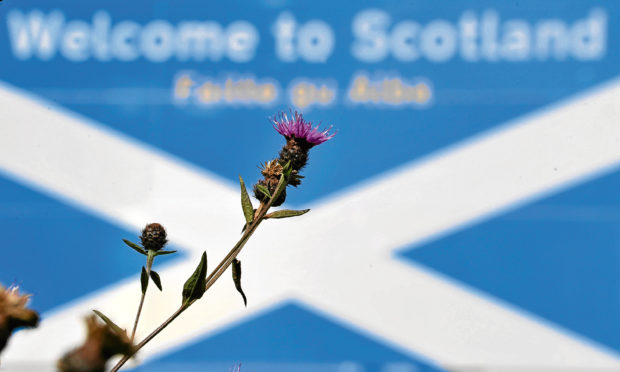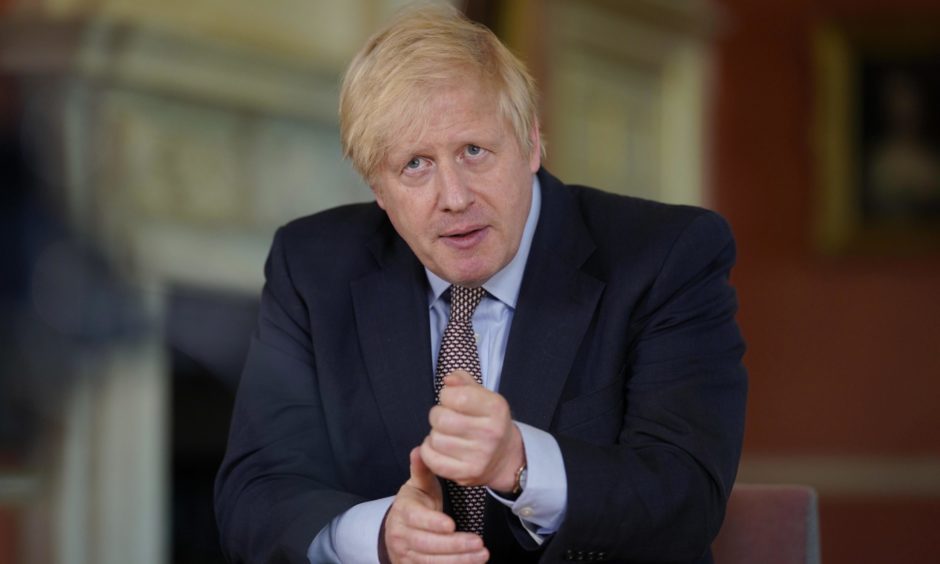People in England have been told not to travel to Scotland, as the nations of the UK diverge in their approach to tackling coronavirus.
The new UK Government guidance on easing lockdown restrictions in England cautions people not to visit Scotland, Wales or Northern Ireland as the devolved governments are still sticking to the “stay at home” advice.
The document, entitled Our Plan to Rebuild: The UK Government’s Covid-19 recovery strategy, asks those living in England to “respect the rules” but gives no guidance on how they will be enforced.
It states: “When travelling to outdoor spaces, it is important that people respect the rules in Scotland, Wales and Northern Ireland and do not travel to different parts of the UK where it would be inconsistent with guidance or regulations issued by the relevant devolved administration.
“Different parts of the UK have different R figures. The devolved administrations are making their own assessments about the lifting of measures in Scotland, Wales and Northern Ireland.”
The UK Government plan includes provisions for people to leave home for purposes other than exercise, meaning for the first time in two months people in England will be able to sit in parks, play sports, drive to the countryside and beaches and visit people from outside their own household.
The condition for allowing such actions will be a strict observance of the two-metre social distancing rule and an understanding that large gatherings, outside one household, are still not permitted.
The document also sets out that guidance will be issued later this week to companies on how to make workplaces “Covid-secure” in a bid to allow certain parts of the economy to start-up again.
On travel, the UK Government says it is working with public transport providers “to bring services back towards Covid-19 levels as quickly as possible”.
The guidance also states that the UK Parliament “must set a national example” and “get back to business as part of this next step, including a move towards further physical proceedings” – raising questions over whether Scottish MPs should ignore advice from Holyrood and travel to Westminster.
The relaxing of measures in England caused widespread concern in the devolved nations, with Nicola Sturgeon saying a break from the “stay at home” could cause unnecessary deaths.
The First Minister said advice to Scots remained the same this afternoon and said people “shouldn’t be going out except for essential purposes”.
Asked about the different approaches of the UK’s four nations, UK chief medical adviser Professor Chris Whitty said: “We are confident that the risk of being outdoors, provided with social distancing, is quite small and will not have a material effect.
“Against that, there are very clear health benefits to exercise and there are also clear benefits to making this sustainable.
“We’ve got to do this for the long haul, it’s really important to understand that, taking a very small risk for something which means it is more sustainable for people to do has some clear benefits.
“We’re not claiming there are no risks, but what we think is they are very small and proportionate to the advantage.”
In the foreword of the plan, Boris Johnson makes clear that there is no “easy answer” to exiting lockdown.
“It is not a quick return to ‘normality’ and inevitably, parts of this plan will adapt as we learn more about the virus.
“But it is a plan that should give the people of the United Kingdom hope. Hope that we can rebuild; hope that we can save lives; hope that we can safeguard livelihoods.”
The prime minister concludes by saying the “only feasible long-term solution lies with a vaccine or drug-based treatment”, but warns that could still be more than a year away.
He adds: “Indeed, in a worst-case scenario, we may never find a vaccine. So our plan must countenance a situation where we are in this, together, for the long haul, even while doing all we can to avoid that outcome.”

